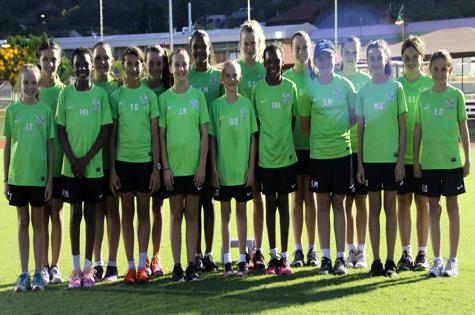Young people who play sport, such as the Under 13 girls from Townsville's Northern Fury Football Club in our picture, are giving themselves a better chance in life by being active.
Regardless of the sport your children play - or the sport you played as a youngster - the message is simple: participate in sport during school years and you’re more likely to progress to further education and to earn more money.
They are the headline results of a Harris Poll conducted in the United States of almost 2,500 adults.
The results show that higher education levels are associated with sports participation, with almost two-thirds (64%) of those who played sport at school also going on to a four-year degree compared with 45% of those who did not play sport. They are also twice as likely to have undertaken postgraduate education.
Participation in athletics is also associated with higher incomes. 15% of adults who participated in athletics have a personal income greater than $100,000, compared with 9% of those who did not participate. The same is true for household income levels: 28% of those who participated in sports have a household income over $100,000 compared with just 15% of those who did not.
Young people are much more likely to have played sport in school years also, with 81% of ‘Millenials’ active compared with their ‘Baby Boomer’ grandparents at 67%. Almost one-in-ten across all age groups are still active in their favourite sport.
Gaining skills on and off the field
Much more than just learning how to kick, throw or catch a ball, participation in sport is also credited with helping people in their job or career in other ways.
Those who were involved in sport during school years agree that the skills they learned spanned beyond just those used on the playing field.
Nearly seven-in-ten (69%) feel their participation in sporting activities was extremely or very important in providing them with skills to work towards common goals. A similar proportion say it was important in helping them develop skills to strive for individual excellence in a group setting (66%) and to have a disciplined approach to problem-solving (65%).
Additionally, a significant majority agree that the learnings and habits from participating in sport help individuals later in life. Almost nine-in-ten (87%) of those surveyed who participated in sport agreed that the learnings and habits they formed helped them to be better team players in their career, and 83% agreed it prepares someone to manage the tasks of their job more successfully.
* * *
Photograph courtesy of Northern Fury Football Club. Photographer - Jo Lukin.


















__small.png)










